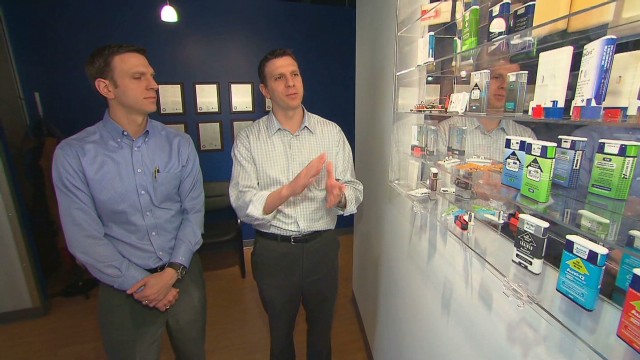Story highlights
- Dining out can be a minefield for those with severe food allergies
- Some advance prep work can make eating in a restaurant easier
- Be sure to let the staff know if they handled the situation well
Whether it's a special occasion or a Saturday night, for many Americans, dining out is one of life's great pleasures.
However, for the millions of Americans with severe life-threatening food allergies, dining out can feel like a minefield.
According to the U.S. Food and Drug Administration, the top eight foods that cause 90% of food allergic reactions are: dairy, eggs, wheat, soy, fish, shellfish, peanuts and tree nuts. However, anyone can be allergic to anything at any time.
So how do you avoid your allergens without avoiding your life? Here are my top strategies for dining out with a severe, life-threatening food allergy -- keeping in mind that if at any point you don't feel heard, understood or safe, don't eat; never risk it.
Before you go
Understand your medical diagnosis and be prepared for allergic reactions. Fill out an anaphylaxis action plan with your medical provider and carry the plan and your emergency medication, such as an epinephrine auto-injector, with you at all times.
Be able to communicate your food allergy needs clearly, firmly and factually to people around you (friends, family, loved ones and restaurant staff). When speaking with others about your medical needs, be assertive, never aggressive, and remember that honey always works better than vinegar. I counsel my clients to have three sentences ready to communicate to anyone who needs to know.
Be choosy about the restaurant. Look for a restaurant whose core mission involves hospitality and catering to all its guests. Many restaurants now have special menus or a notation on the menu that they understand food allergy requests. That's also a great place to start. Pick out one dish from the menu that looks like it might be suitable for your needs.
Call ahead and speak to the highest person in charge who's available, the manager or chef. You're looking for a knowledgeable representative of the restaurant. Ask about the dish that you chose: would it be suitable for your needs; what about preparation, ingredients, cross contact with your allergens?
Make a reservation on the early side on a less busy night. For example, 6 p.m. Tuesday versus 8:30 p.m. Saturday will give the restaurant the best chance of being able to accommodate your needs.
When you get there
Speak to whomever you spoke to on the phone and reiterate your needs. You can also use a chef card -- a business-sized card with explanations in pictures and words of your allergens and where they hide. Chefs that I've spoken to love them as they eliminate the game of "telephone" that can happen between the patrons and the kitchen.
When you're seated, relay your needs again. Go over your dish, ingredients, preparation and issues of cross contact. If the restaurant staff communicates that they feel confident about serving you, then place your order.
When your order arrives, confirm that it is your "special" dish. Look at the dish before you dine. If it doesn't look like what you ordered, don't eat it and speak with management immediately.
If all goes well, let the staff know that they've done a great job. An e-mail "thank you" the next day is always appreciated, or a review on online restaurant listings is nice, too.
If after any of these steps you still feel unsafe, don't eat. If you have an allergic reaction, use your emergency medication immediately and call 911.
Food allergies are real and serious. By understanding your food allergy diagnosis, having your emergency medications on your person at all times, knowing how and when to use your medication and communicating your needs clearly to those around you including restaurant staff, you can have enjoyable dining out experiences. Remember my motto: "Just because you have a restricted diet doesn't mean you have a restricted life."
Extra tips
-- Don't forget to let the bartender know your food allergy needs as tree nuts, peanuts, dairy and eggs are used often in drinks.
-- Desserts, even when made in-house, are usually allergen-filled with wheat, eggs, dairy, tree nuts or peanuts. It's best to skip them.
-- Dim lighting may be romantic, but never eat what you can't see.
-- If you're at a family event or a work dinner and these steps are out of your control, don't miss out. Eat beforehand or bring a snack with you, have a safe-for-you drink and join in!









